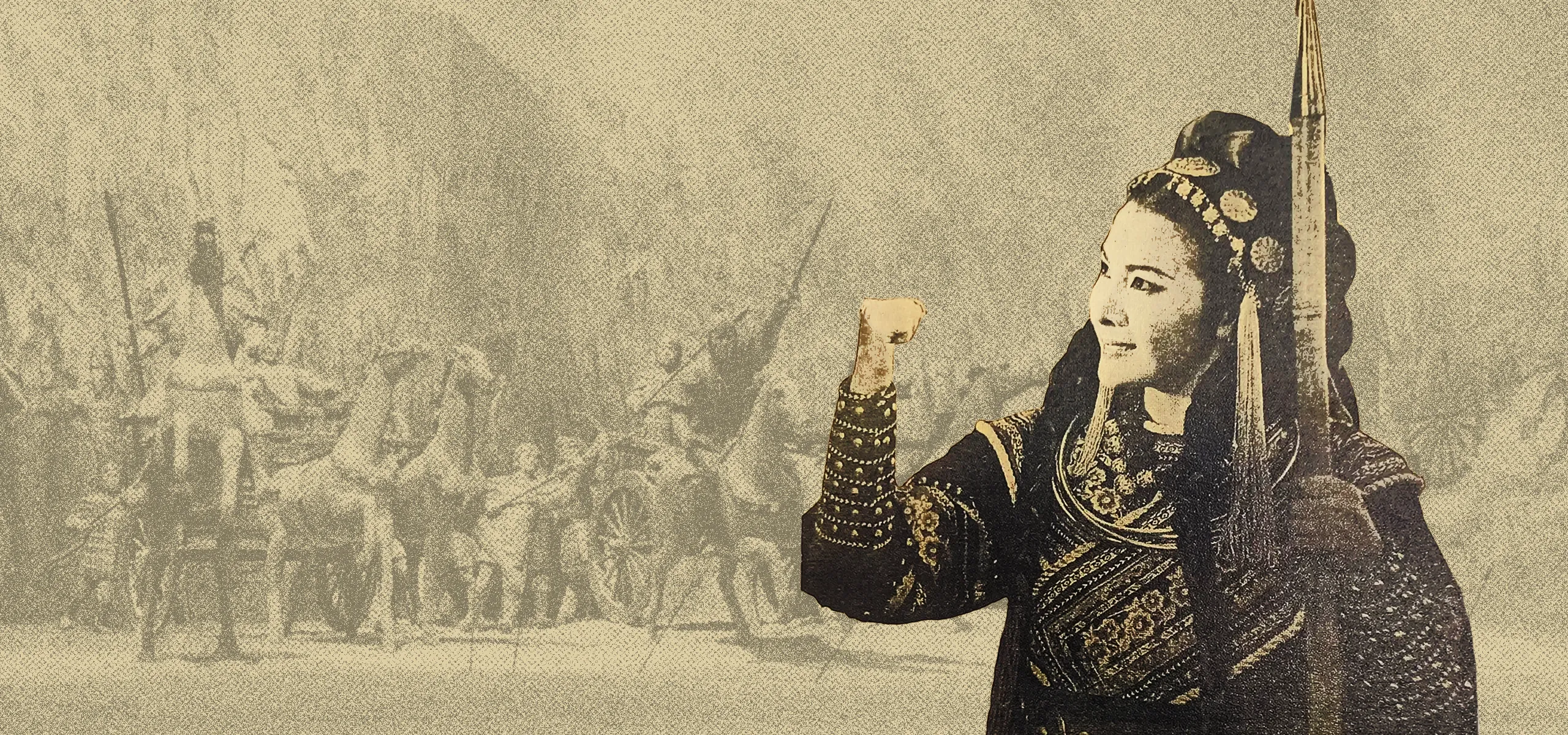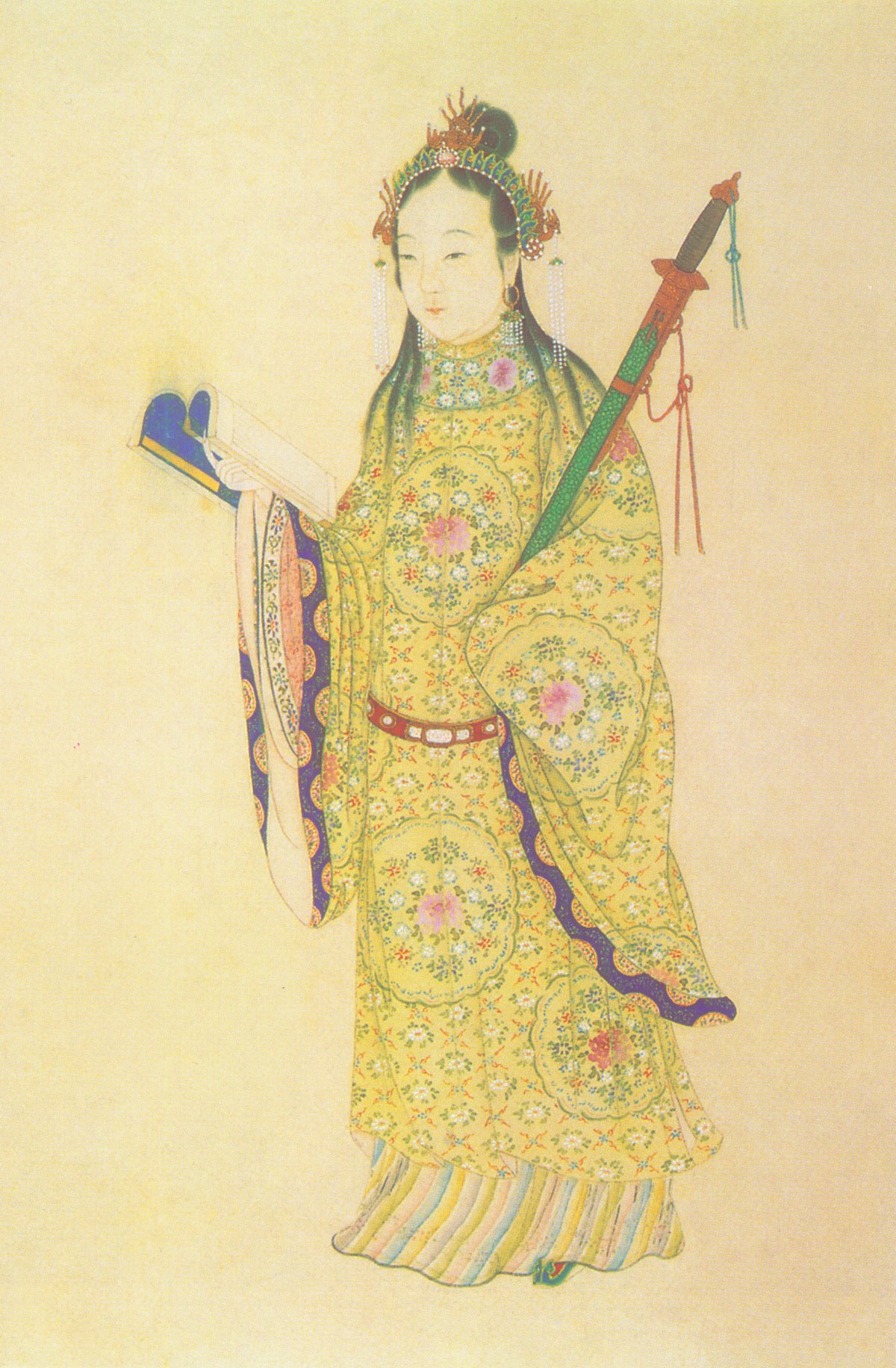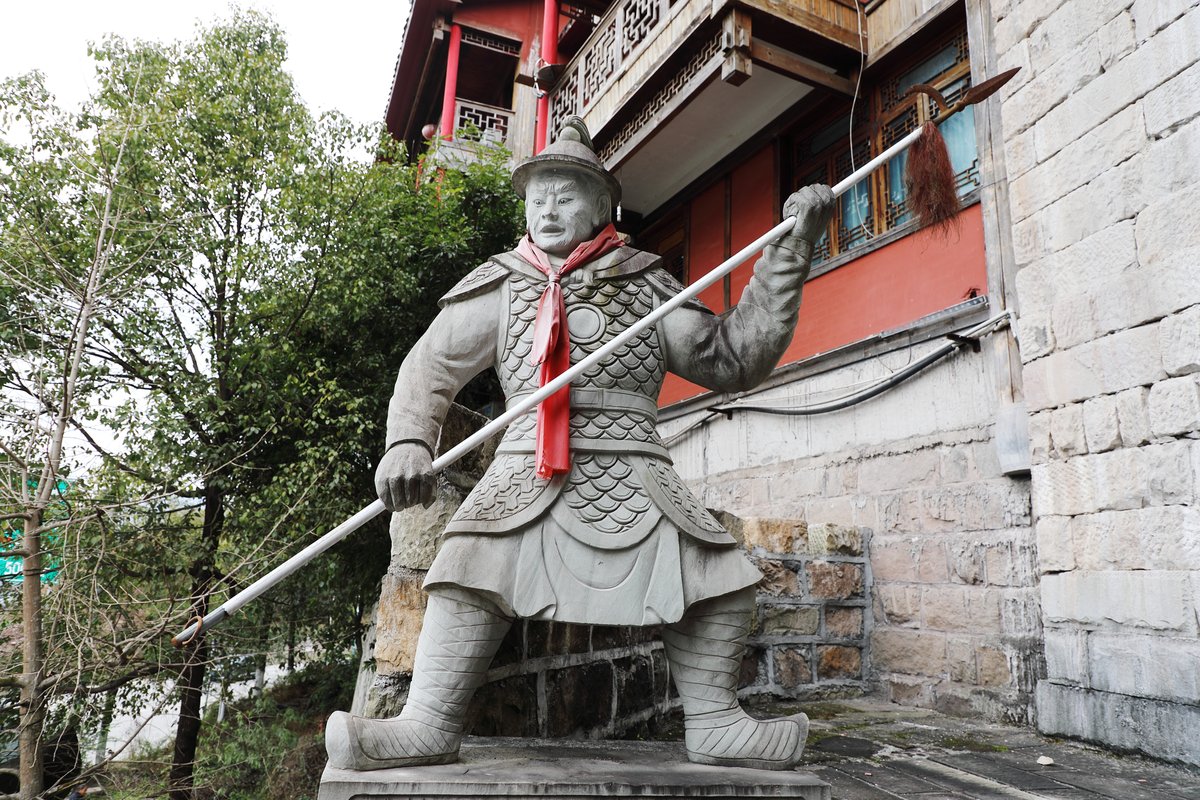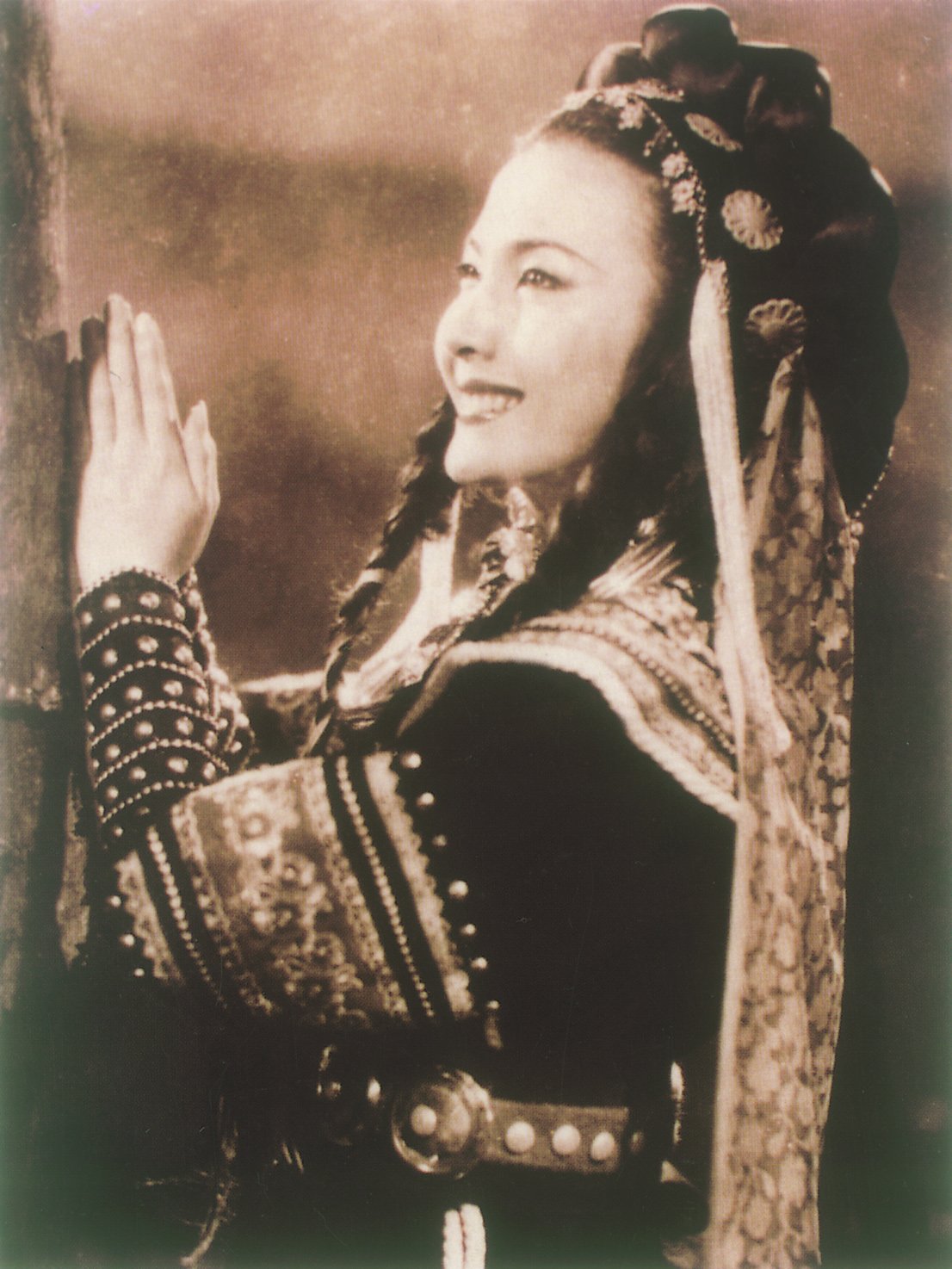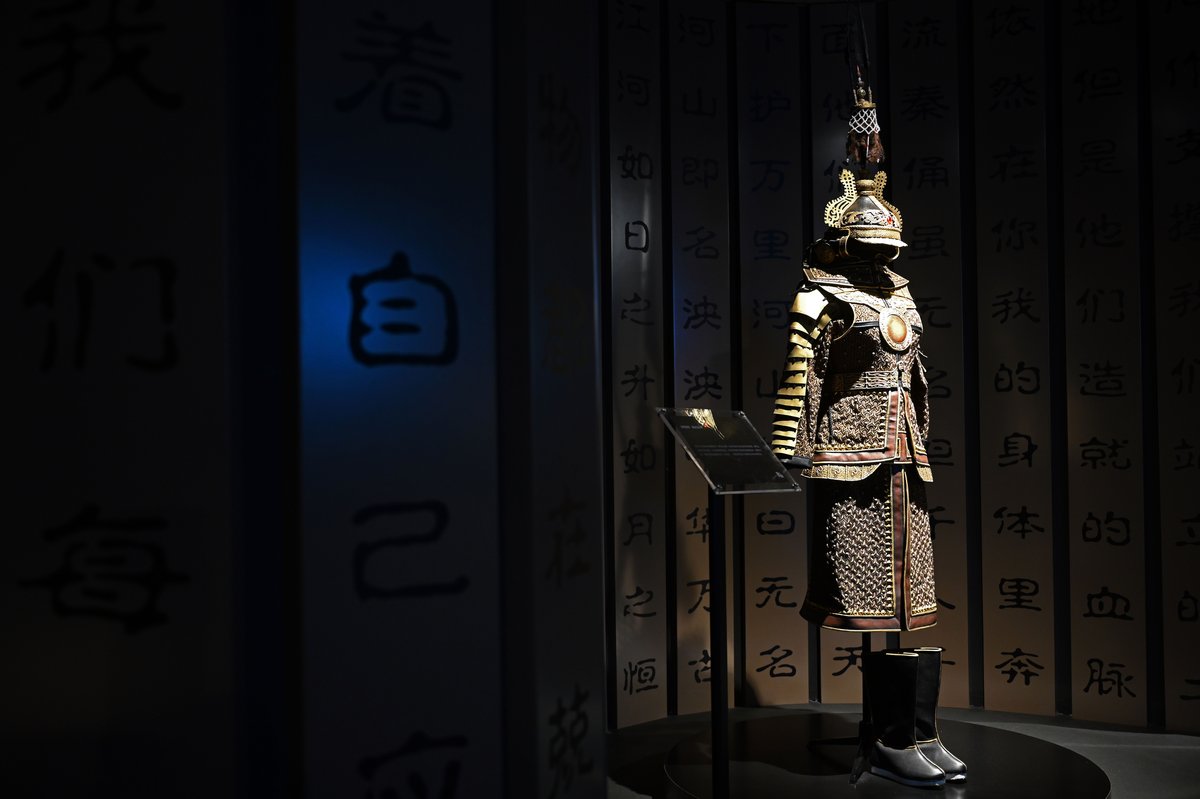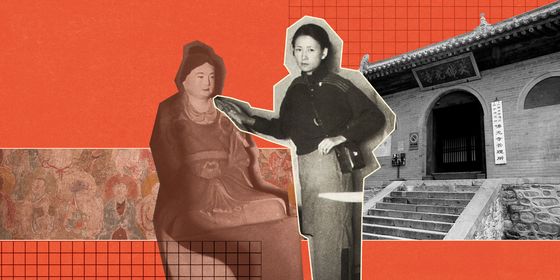Forget Mulan—ancient China’s most successful female military commander went undefeated in battle and earned honors for over 50 years
In ancient China, few women had their names recorded in history books for heroic deeds. Although scholars began writing biographies of women in the Han dynasty (206 BCE – 220 CE), they were part of a genre called “Biographies of Exemplary Women (列女传),” which praised certain women as moral exemplars for their chastity, virtue, filial piety, and kindness.
But Qin Liangyu (秦良玉), a military general in the Ming dynasty (1368 – 1644), broke this rule. She led one of history’s most feared armies in China’s southwest, won countless battles against rivals and rebels, and inspired an emperor to pen the famous saying, “Why must a general be a man?” She was also the only female commander in ancient Chinese history to receive military honors during her lifetime, and was the only woman to be included in the biographies of generals and ministers in dynastic history books.
Early military life
Most of what we know of Qin’s life comes from her biography in the History of Ming (《明史》), the official chronicle compiled (as per tradition) by the Ming’s successors, the Qing dynasty (1616 – 1911). She was born in 1574 in Zhongzhou, located in present-day Chongqing, where her father, Qin Kui (秦葵), was a distinguished scholar with a passion for military tactics.
In the turbulent last decades of the Ming dynasty, facing the threat of famines, rebellions, and invaders from the north, Qin Kui believed that girls and boys alike should be educated for self-preservation. As a child, Qin Liangyu studied both Confucian culture and military affairs alongside her brothers, and became proficient in both literary and martial arts, as well as military strategy, horseback riding, and archery.
Read more about the badass ladies who made history in China:
- Zheng Yi: The Chinese Woman Who Became History’s Greatest Pirate
- Tang Qunying: One of China’s Earliest Feminists
- Mulan: The ‘True’ Tale of China’s Legendary Female Warrior
At the age of 19, Qin Liangyu married Ma Qiansheng (马千乘), the Xuanfushi (a hereditary official position held by leaders of ethnic groups in the southwestern region) in the nearby county of Shizhu. After marriage, Qin and her husband trained troops together. Their soldiers used a special type of spear with a hook on the tip and an iron ring at the tail, which could be connected together to help the troops climb mountains during combat. Since the shafts of their spears were made from white waxwood, they were known as the “White Pole Army (白杆兵),” and were renowned far and wide for their strict discipline and outstanding combat skills.
In 1599, Yang Yinglong (杨应龙), the native chieftain of Bozhou (today’s Zunyi, Guizhou province), rebelled. Ma led 3,000 cavalrymen to suppress the rebellion. Qin followed her husband, leading 500 men to escort supplies. Together, they pursued the rebels back to their stronghold, successively breaking through seven enemy fortresses. This was Qin’s first recorded military action, but although the rebels were quelled, Qin did not take credit for her contributions.
In 1613, Ma offended Qiu Chengyun (邱乘云), a powerful court eunuch, and was framed and thrown into prison, where he soon passed away. Since their son was too young to inherit the title, Qin succeeded her husband as the Xuanfushi of Shizhu and became the sole commander of the White Pole Army.
Resisting the Later Jin army in Liaodong
In 1620, the Manchu-led Later Jin state invaded the Liaodong area of northeastern China. The Ming court ordered troops from across the empire to come to its rescue, including the White Pole Army. Qin was promoted to the title of a third-rank official, a high distinction for the time.
Qin first sent her brothers Qin Bangping (秦邦屏) and Qin Minping (秦民屏) to the front lines with an army, and then personally led 3,000 elite soldiers to reinforce their numbers after Qin Bangping was killed. After a fierce battle, the White Pole Army managed to hold the famed Shanhai Pass, the gateway to the Ming empire on the Great Wall. Even the enemy was impressed. In the official biography of Nurhaci, the Later Jin’s founder, it is said that this great Manchu warrior criticized his previously undefeated Eight Banners cavalry for “fleeing at the sight of the enemy” when battling Qin’s forces.
Pacifying rebels
To continue the battle against the Later Jin, Qin returned to Sichuan to recruit soldiers. There, she encountered a rebellion by the Yi ethnic group, who resented the heavy taxes imposed by the Ming government to finance the war in the Liaodong region. The rebels sent an envoy with generous gifts to Qin, trying to persuade her to join them and avenge her husband’s death. Qin refused, then actively worked to suppress the rebellion.
In 1630, Qin went to Beijing to rescue the Ming from the Manchu army again. Afterward, the Chongzhen Emperor gave Qin a noble title and composed four poems to praise her. One of the lines, “Why must a general be a man,” remains widely known today.
The late Ming dynasty was beset by rebellion from all sides, but somehow, Qin remained loyal throughout. She engaged several times with rebel forces in Sichuan led by Zhang Xianzhong (张献忠), and defeated them for the second time when she was over 60 years old. Yet even competent and loyal generals like Qin couldn’t save the Ming from decline, and it was finally overthrown by rebels in 1644. The Later Jin, which had renamed itself as the Great Qing Empire, then swooped in and took over its territories installing their own leader in Beijing as emperor.
Some Ming loyalists formed a remnant state in Nanjing, and its nominal ruler, the Longwu Emperor, appointed Qin as a marquis. She was later promoted to Envoy for Pacification in Sichuan. Although already in her 70s at this time, Qin accepted the title and raised the Ming banner against the Qing. But just before she was about to embark on her mission, the Longwu regime collapsed.
Qin died in 1648, aged 75, and was buried in Shizhu. The story of her life, along with her weapons and armor, is showcased in a museum there. Her life has been adapted into plays and movies, some of which focus not only on her military actions but also her romance with her husband. In recent years, Chongqing’s local government has been waking up to the huge marketing potential of their homegrown heroine. The ancient battlefield of Wanshou Mountain, which Qin and her troops once held against enemies, has become a popular attraction.
Yet Qin is still far less known than fictional female heroes like Hua Mulan. Having her deeds recorded in dull history books instead of catchy folk songs and Disney films probably didn’t help Qin’s popularity. It’s also possible that her story slipped through the cracks because she never pretended to be a man. In the official records, her gender was almost ignored amid the long lists of her daring exploits and impressive titles, just as it would have been for a male general—perhaps the highest “honor” that a patriarchal society could give to a woman of her time.





